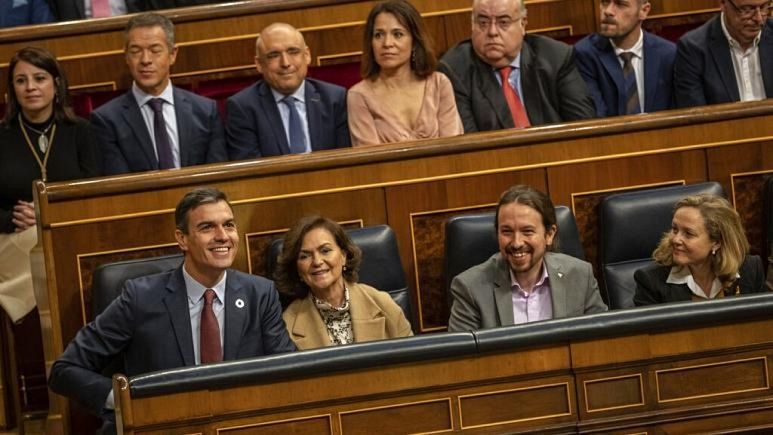'Historic measure': Spain backs minimum income for most vulnerable
by Laura Llach
Spain's government on Friday approved the introduction of a "minimum vital income" to be dolled out to 850,000 of the country's most vulnerable families.
Prime Minister Pedro Sanchez, from the ruling Socialist Party, described it as "historic measure", adding: "a country does not prosper if it leaves out part of its population".
He said that it will "protect those who are having the worst time, fight poverty and contribute to the economic recovery of the country".
Deputy Prime Minister Pablo Iglesias, from the left-wing Podemos Party, which has championed such a scheme for over a year, said that the implementation of the measure has been accelerated due to the economic crisis ushered in by the COVID-19 pandemic.
"There is no freedom if you cannot make ends meet," he said during a press conference held after cabinet gave its formal approval.
Who is eligible?
To claim it, families must prove they are in a vulnerable situation with a monthly salary of under €200 or if the average income in the household is less than €450 per person.
The "minimum vital income" can be cumulated with paid work as well as other state benefits such as unemployment support. The government is hopeful it will encourage people to remain or continue looking for work.
In practice, if a family member earns less than €200 per month and their partner earns €600 per month — which would average at €400 euro per person — they would be eligible for the new aid.
Migrants who have been living in Spain for more than a year could also claim the new benefit with the residency requirement waived if the person has been the victim of abuse or trafficking.
A total of 850,000 families are expected to benefit from the new measure. The government has indicated that as many as 100,000 families could be automatically enrolled from June.
Adults between the age of 23 and 65 who live alone can also be eligible. In total, some 2.3 million people should receive it.
The amount each claimant will receive will vary between a minimum of €462 and a maximum of €1,100 per month depending on whether there are children or unemployed adults in the household.
The government expects it will cost state coffers €3 billion annually and plans to partially fund it through a proposed "Tobin tax" on digital companies and stock market transactions.
€153 billion
Spain has been hit hard by the pandemic with more than 27,000 fatalities recorded in the country — the third-highest tally in the European Union and the fifth in the world — according to a tally kept by the Johns Hopkins University.
COVID-19 and the lockdown imposed to curb its spread have severely impacted the economy. Spain's unemployment was already over 13.5% before the pandemic and the International Monetary Fund (IMF) said last month that it expects it to rise to 20.8%.
According to preliminary figures, growth in the country shrunk by 5.2% in the first quarter, its worst reading since records began in the 1970s.
The IMF forecast that Spanish GDP will contract by 8% this year.
To respond to the pandemic's economic fallout, the government has already pledged more than €153 billion in fiscal stimulus, according to the Bruegel thinktank.